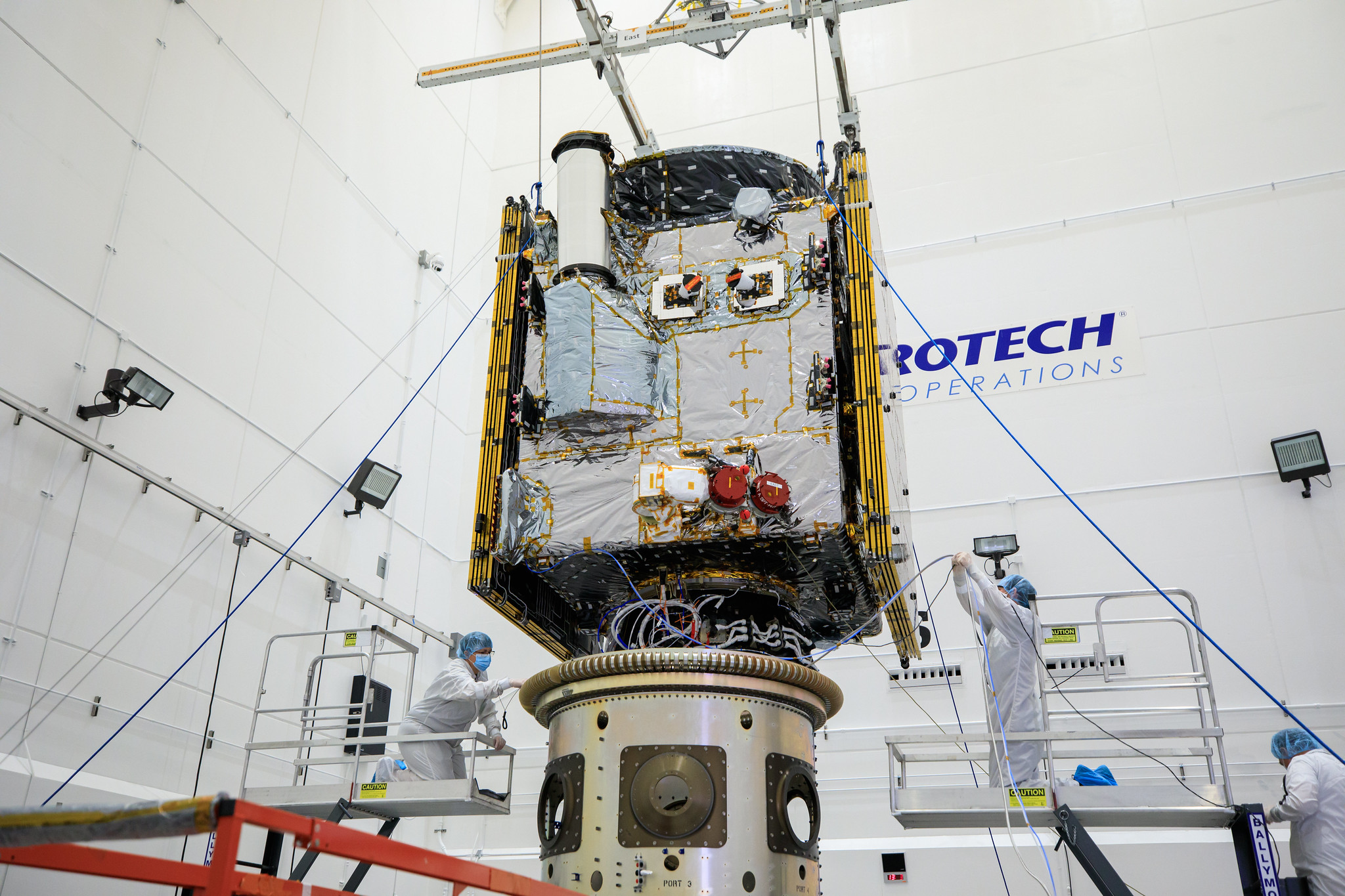WASHINGTON — NASA has postponed the launch of the asteroid mission Psyche a week to update the configuration of thrusters on the spacecraft.
NASA announced late Sept. 28 that it has rescheduled the launch of the spacecraft, previously planned for Oct. 5, for Oct. 12. A Falcon Heavy rocket will have an instantaneous launch window at 10:16 a.m. Eastern that day from Kennedy Space Center’s Launch Complex 39A.
NASA said the one-week delay, decided during a flight readiness review for the mission, will give engineers more time to verify parameters used for nitrogen cold-gas thrusters that orient the spacecraft. Those parameters required changes after engineers concluded that the thrusters would operate at warmer temperatures than previously predicted.
“Operating the thrusters within temperature limits is essential to ensure the long-term health of the units,” NASA said in a statement about the delay, adding that the verification work involves running simulations and making adjustments to flight parameters and procedures.
“It’s so important that we get this right. These thrusters aren’t the main propulsion system, but they matter, especially right after launch, and we want to make sure we are using them in a very robust way when they are needed,” said Laurie Leshin, director of the Jet Propulsion Laboratory, which is leading the mission, in a social media post.
“We are confident the team is on track to mitigate this concern, and we look forward to our launch in just 2 weeks!” she added.
The delay takes away one week from a three-week launch period for Psyche. The spacecraft has daily instantaneous launch opportunities from Oct. 12 through 25 that would allow it to fly its trajectory to the main belt asteroid Psyche.
That trajectory was revised last year when the spacecraft missed its original launch date of August 2022 because of software testing problems. An investigation into that delay uncovered significant institutional problems at JPL that contributed to the slip, which the independent panel that led that review said in June have since been addressed.
The delay increased the cost of the mission from just under $1 billion to $1.2 billion and pushed back the spacecraft’s arrival at the asteroid from 2026 to 2029. Once at the asteroid, it will spend two years in a series of progressively lower orbits to study the structure and composition of the asteroids, the first solar system body made primarily of metal to be visited by a spacecraft.
At a Sept. 6 briefing, project officials said they were working no issues with the spacecraft, making no mention at the time of any concerns about the spacecraft’s cold-gas thrusters. The main uncertainty at the time was whether a potential federal government shutdown in October because of a lapse in appropriations might affect the mission.
NASA officials said Sept. 28 that the Psyche launch has been classified as an “excepted” activity and will be allowed to proceed if there is a shutdown. That shutdown looks increasingly likely as neither the House nor the Senate have yet passed a continuing resolution that would fund the government on a temporary basis when the new fiscal year starts Oct. 1.
